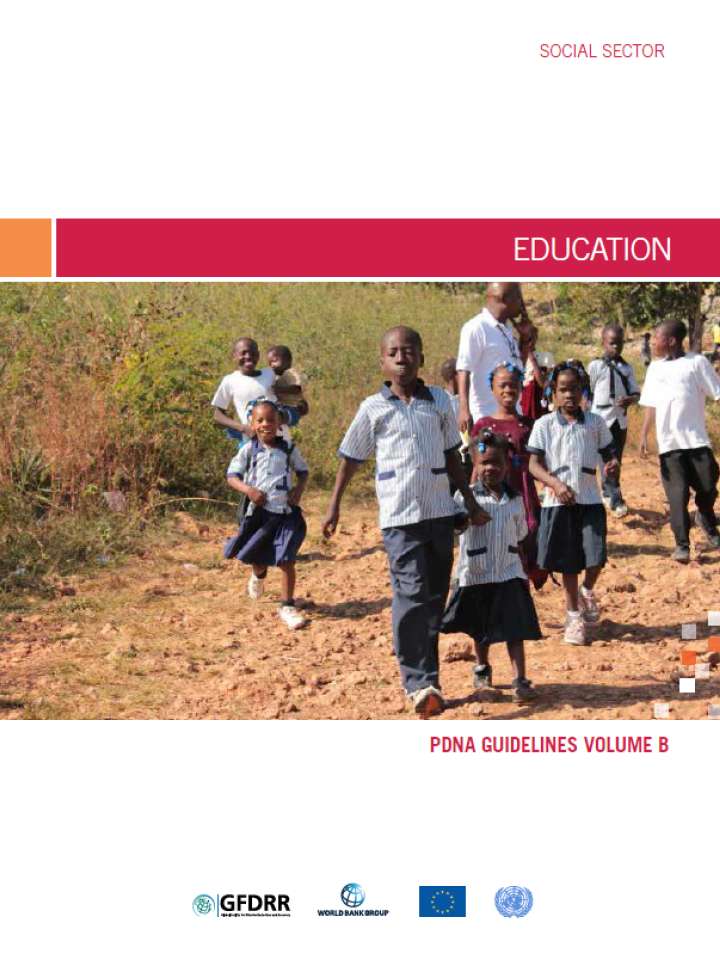Post-disaster needs assessments guidelines: Volume B - Education
This chapter provides guidance on the process and components of a PDNA for the Education Sector. An Education Sector Assessment should utilise participatory, people-centered approaches in creating a clear framework for recovery and reconstruction, and its links to long-term development. It should be conducted through a risk reduction
and gender-sensitive lens, and will often inform the revision of flash appeals and donors´ conferences. The PDNA process will be led by national governments and thus the Ministry of Education (MoE) will most often serve as the sectoral lead. It is the responsibility of the sectoral lead to determine, in consultation with relevant partners, the methodology for data collection and approaches to data analysis. Thus, these guidelines are meant to guide the Education Sector of the PDNA team in the preparation of a comprehensive assessment of the event and develop a full recovery strategy. This preparation follows the internationally accepted standards for assessments.
Disasters pose direct impediments to educational goals, including by exacerbating insufficient prioritisation and support to education on the part of the national governments (such as inadequate spending as a percentage of GDP or inequitable distribution of funding and resources). Furthermore, a disaster situation could be exacerbated by the actions of the national
and/or international community in response to the event. Within many countries, the negative consequences of a disaster compound the effects of poverty, child exploitation and inequality due to gender discrimination or cultural factors, resulting in increased vulnerability and creating more barriers to quality education. Given the significant damage and changes in flows that disasters can inflict on education systems, assessment efforts must be comprehensive and holistic. They must adopt a life-cycle approach to education and encompass both the ‘hard’ (damages and changes in flows) and ‘soft’ (human recovery needs) elements of education. Specific consideration of the impact of the disaster on women, as well as the specific needs of female and male children and youth is particularly important in the Education Sector. The PDNA process works to combine a complete analysis of both the physical and human recovery aspects of assessing and addressing needs after a disaster.
This PDNA volume is available in English, French, and Russian.
